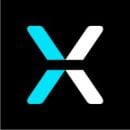In the last several years, the corporate world has increasingly focused on diversity, equity and inclusion in business practices. Much of the initial work around DEI can happen in hiring processes, diversifying organizational workforces and broadening representation.
But true equity involves more than diverse hiring and representation. For tech companies serious about the work, the challenge lies in incorporating DEI principles and commitments into everyday, operational, decision-making processes. This involves corporate culture shift, and it takes both time and intention.
Brianna Rodgers, culture & DEI program director at Apex Fintech Solutions, knows these challenges well. The software company, which provides digital execution, clearing and storage for the global universe of investable assets, has been working to fold DEI values into every layer of company culture.
That work involves initial hiring practice changes. The company ensures that every interview panel includes an interviewer who self-identifies in the same way as the candidate does, for instance. But the shifts happen in other, more sustainable ways, too.
Every new hire goes through a workshop with the head of corporate culture, and the learning and development team is implementing mentorship programs, offering extensive manager and individual contributor training as well as recruiting diverse candidates for an early career program. This work helps ensure the entire company is on board with Apex’s commitment to DEI.
“By educating employees on these elements and providing support tools, we are encouraging each one to champion the culture across the organization,” Rodgers said.
Built In sat down with Rodgers to learn more about how Apex has worked to integrate DEI across the company.
Apex Fintech Solutions is a software company that provides safe, frictionless digital execution, clearing and storage for the global universe of investable assets.
Personnel decisions are often the most visible drivers behind DEI initiatives. How does your company approach hiring and promotions in relation to DEI goals? How does this approach influence the way you engage with your team?
At Apex, we're focused on DEI education for all recruitment process stakeholders. We're cultivating a new comfort around engaging diverse candidates and ensuring interview panels include an interviewer who self-identifies in the same way as the candidate. We’re also socializing our bias training, which will be deployed across the organization and shared with hiring managers, recruiters, team leads and individual contributors who will serve on interview panels.
We've also created a DEI recruitment handbook that can be used in real time interviewing situations or referenced at a later time to minimize biases, create confidence in speaking to diverse candidates and provide “at the fingertip” information regarding Apex’s core values and our DEI strategy and implementation plan.
Internal mobility is an area of focus for Apex, and we utilize our Learning and Organizational Development team to help us train, assess and develop key talent as employees navigate their career path at Apex. We're implementing mentorship programs, offering extensive manager and individual contributor training, and recruiting diverse candidates for our full-time early careers program.
Workplace decisions and the hiring process are often crucial to supporting DEI, whether you're considering office location and accessibility or expectations around hybrid work. How has your company ensured equity in policies and processes around where, when and how employees work? Has this changed anything about the ways you work day-to-day?
Most employees fall under our hybrid work policy. Our team members are asked to have an in-office presence at least three days each week. Managers have general discretion to determine what days of the workweek are best for their teams in most locations. In practice, this could look like having their gathering in the office on a single shared day and then allowing flexibility in determining the remaining days in-office on their own.
Moving towards a hybrid work model for our organization has not been easy, but we're mindful of the work that comes along with having team members align with these expectations. We are exploring training opportunities for our colleagues on recognizing biases that could be harmful (e.g., proximity), leading distributed teams with trust, and building soft skills such as effective ways to provide and receive feedback.
“We’re also emphasizing a culture shift to focus on tangible results instead of ‘presenteeism’ and reducing mindsets that revolve around ‘first in, last to leave’ and ‘who is the quickest to respond to messages.’”
We’re also emphasizing a culture shift to focus on tangible results instead of “presenteeism” and reducing mindsets that revolve around “first in, last to leave” and “who is the quickest to respond to messages.” Our emerging mentorship program is one way we’re ensuring equal access to networking opportunities.
Are there certain steps, considerations or rubrics you take into account when integrating DEI values into your decision-making process? How did you arrive at these considerations as central to your business philosophy?
At Apex, we recognize that the core values of an organization determine the corporate culture that will be born, sustained and preserved. Focusing on core values education for all employees is critical.
One of our core values centers around being respectful, collaborative and inclusive. We're intentional about inclusivity at Apex and inspiring the essential sense of belonging that we want every employee to experience at work and beyond.
Every single new hire completes a workshop with our Head of Corporate Culture, who introduces the importance of our cultural ecosystem. The workshop also covers how employees can promote the health of our culture for themselves and others.
The elements of our ecosystem we have identified as crucial to the health of our culture are: a diverse workforce, respect, sense of belonging, psychological safety, equitable access to resources and training, as well as transparency and fairness in decision making. By educating employees on these elements and providing support tools, we are encouraging each one to champion the culture across the organization.







